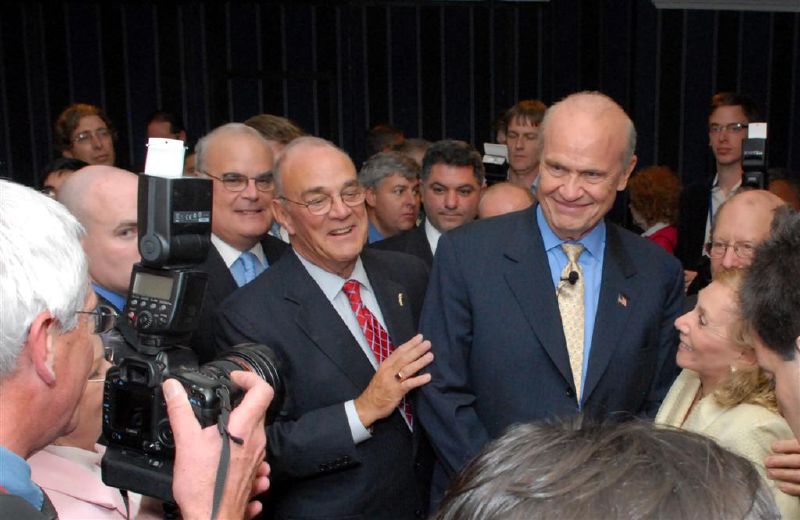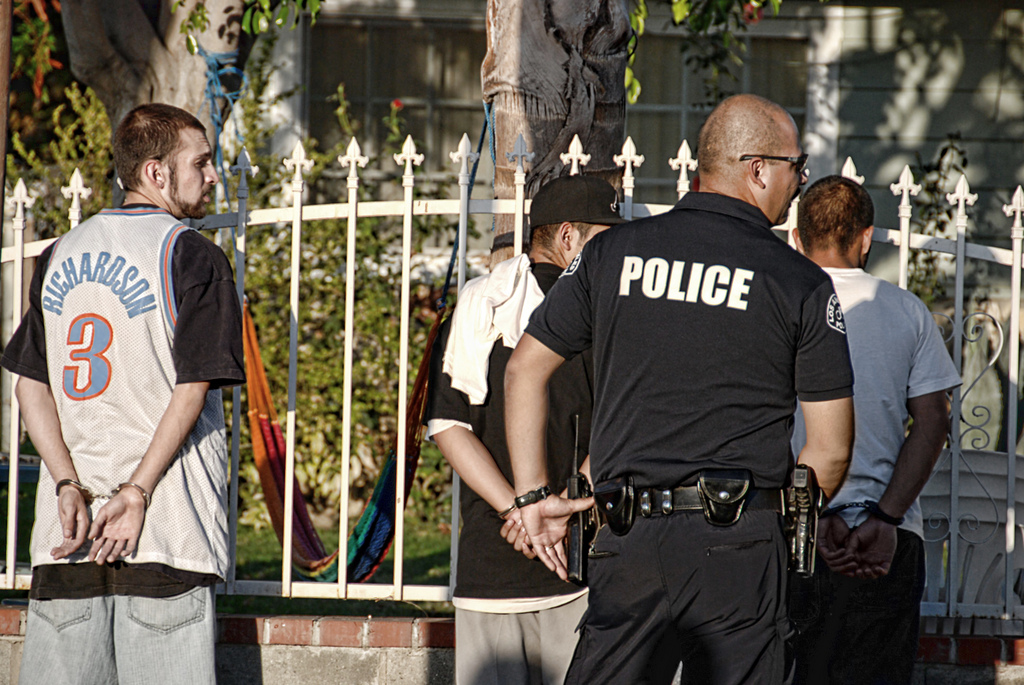Mike Long, who served as Chairman of the New York State Conservative Party from 1988 to 2019, died on Sunday. His friend, George Marlin, former head of the New York Port Authority and author of a history of the party, described him when he retired as party chairman in 2019 as “the quintessential street corner conservative.” Mike Long was that and much more.
Mike was born and raised in Brooklyn, was a Marine, a family man and a devout Catholic. His backbone, like his faith, was rock hard. He never flinched and never backed down. His importance to his party cannot be exaggerated. Few outside New York may know just how important Mike Long was, but New Yorkers who know anything about politics knew he was a power to be reckoned with for decades.
New York is the only state in which a candidate for office is awarded the total votes he receives if nominated by more than one party. This has been particularly important in New York because hundreds of thousands of voters reluctant to vote for a Republican will vote for that same candidate on the Conservative line. No state-wide Republican candidate in New York has been able to win without the New York State Conservative Party’s endorsement since 1974. That made Mike Long a kingmaker with incredible leverage.
Mike attended the monster 1964 Goldwater Rally in Manhattan’s Madison Square Garden. That rally attracted 18,000 people who got into the Garden while another 15,000 listened to the speakers over loudspeakers on the street outside. As the newly retired Marine sat mesmerized by the conservative heroes of the day, he decided to devote his life to conservative politics. He volunteered for Goldwater, campaigned for Bill Buckley, founder and editor of the most influential American conservative magazine National Review, ran for mayor and was front and center in Jim Buckley’s successful third-party campaign for the U.S. Senate in 1970. He was hooked. He’d become active in the new Conservative Party, first in Brooklyn and then as vice chairman then state chairman.
In the eighties, I got Mike’s number from a mutual friend. I thought I was calling the party’s headquarters and was taken aback when the phone was answered “Long’s Liquors.” Mike and his brother waited on customers at the liquor store they owned together. Mike took calls there from politicos, writers and folks like me. When the shock wore off, I felt a true kinship, recalling my father practicing politics between his customers at Keene’s Tap in Wisconsin. For that and a lot of other reasons, we became close friends and like everyone else who knew him, I will miss him dearly.
Mike was loyal to his friends, but an implacable foe to those he saw as undermining the values he championed. He served on the board of the American Conservative Union while I was chairman, we spent years in the trenches together, and I knew that he always had my back. He could discuss ideas with the best of them but wasn’t averse to mixing it up when forced. In 1977, future governor Mario Cuomo ran unsuccessfully for New York City mayor and found himself on a panel with Mike Long. When Mike called him out for lying about the Conservative Party, the two got into a shoving match and were separated by security guards. To his credit, Cuomo later apologized and admitted he’d been wrong, but they battled for years until in 1994 when as Cuomo was seeking his fourth term as governor, Long put together a coalition of Republicans and conservatives that allowed Republican George Pataki to swoop in and beat the liberal media darling and force him out of politics.
The 1960s conservative movement attracted not just academics and writers but real people like Mike Long. These were the kinds of people George Marlin was referring to when he described Mike as a “street corner conservative.” These were men and women of faith, strong patriots who loved their country and lived for their families. Most had come from Democratic families, and many found it difficult to pull a lever for a Republican but were attracted in New York and elsewhere to the new conservative movement and candidates like Goldwater in 1964 and Jim Buckley in 1970, willing to stand up for their shared values.
New York City was in trouble back then. The city was crumbling, and crime was rampant. If one lived or worked in Brooklyn as Mike did, you shared turf with the mob. The death of another Brooklyn native this week Paul Sorvino reminded me of a run-in Mike had with mob boss Paul Vario back in the day. Paulie Cicero, the character Sorvino played and made famous in “Goodfellas” was based on Vario. The 1990 film about a minor Brooklyn mobster and his hapless crew mirrors the reality of the Brooklyn Mike Long called home.
Mike said on his way to lunch one day he was approached by two men who pulled guns and fired at him. They hit him once, he rolled under a parked car, and they ran off as people poured out of restaurants and stores along the street. The police took him to the hospital to remove the bullet. As he sat in the recovery room, Paul Vario arrived hat in hand to apologize for what happened. The mob boss told Mike. “Sometimes my guys make mistakes for which I am truly sorry. They were supposed to teach a guy who looked a lot like you a little lesson. We have nothing against you, and I sort of like your politics, so don’t worry, we’ll take care of everything.”
Mike would say, “What could I say? Later I realized that it might have been a one-time insurance payment. In those days, most businesses in that area of Brooklyn were periodically robbed. My brother and I got the impression that we could leave the door open and the place unattended while we went to lunch, and no one would even think about bothering it.”
So apparently Mike wasn’t the only street corner conservative in the neighborhood. Brooklyn, New York and our country are a better place because Mike fought the good fight and never stopped smiling. We sometimes forget that we live in the best country on earth because we all stand on the shoulders of giants … like Mike Long.
This article originally appeared in American Liberty News. The opinions expressed in this article are those of the author and do not necessarily reflect the positions of The Republican Standard. Republished with permission.





